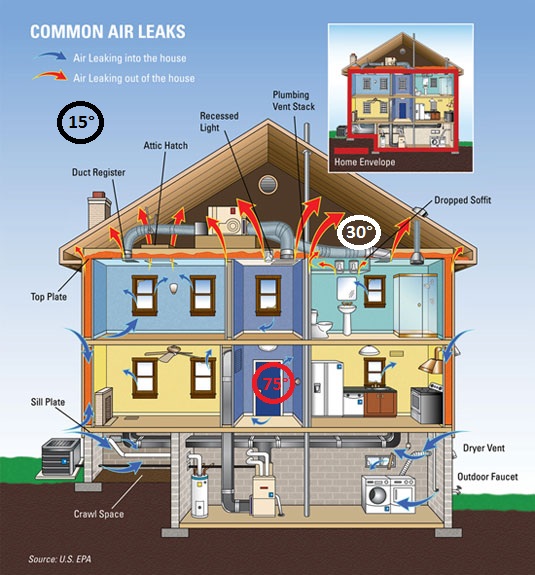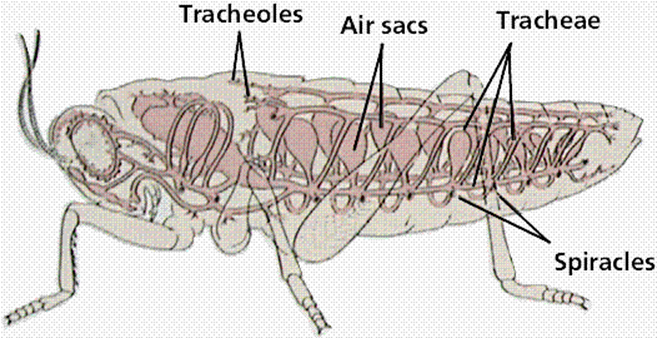W hen it comes to Indoor Air Quality (IAQ) there is a ton of good information out there & likewise there is a ton of bad information out there. While many of us might have thought that the corner was turned on the whole “my house needs to breathe” myth, it appears that might not be the case. For example, in a recent piece we showed some poll results for two simple questions posed to a group of architects, home performance pros & contractors. Amazingly 76% said that a house needs to breathe & almost 90% agreed that you can build one to tight. It also led to this comment;
hen it comes to Indoor Air Quality (IAQ) there is a ton of good information out there & likewise there is a ton of bad information out there. While many of us might have thought that the corner was turned on the whole “my house needs to breathe” myth, it appears that might not be the case. For example, in a recent piece we showed some poll results for two simple questions posed to a group of architects, home performance pros & contractors. Amazingly 76% said that a house needs to breathe & almost 90% agreed that you can build one to tight. It also led to this comment;
I am part of the large group that thinks, probably incorrectly from what I am reading, that a house does need to breathe (not for the houses sake but for those that reside in it). Wouldn’t you need to allow a house to breathe so that you can allow Radon and other gases and/or chemicals (perhaps from new carpets) to leave the house?
Quite frankly while I would love to address everything in just one piece, that would be impractical. So for this piece we are going to focus on the basic – just what does your house need to do…
Does a house need to breathe?
The simple answer is no, only living creatures like you, your family & pets do. The catch is that we also have to consider that not only do we need air but we have to have a way to eliminate or exhaust the contaminants from the space. For example;
- Not only do we, but also our pets sweat & release odors we also exhale carbon dioxide & moisture into the air when we do breathe
- Taking showers, having plants inside, cooking, and other activities can add to not only the moisture in the air, but even some more interesting odors
- For those with combustion appliances (or worse yet a vent-less heater) inside the house, now we also have a device that not only wants to consume the same oxygen we need but it produces even more moisture, carbon dioxide & occasionally carbon monoxide (aka the silent killer)
- VOC’s & others odors come from not only everyday items like pens & hairspray, but also certain building materials off gas for a while…
Is it any wonder that many people consider the outdoor air as fresher than indoor air, or that in many cases it really is?
 Unfortunately part of this issue is quite frankly our bastardizing of words over time. We have gone from the days of bringing in fresh air via opening up some windows to now equating air coming in from cracks & crevices as being just as “fresh” and good. In some ways I am can be just as guilty as others as I have been known to describe rain screen details as “allows for the siding to still breathe & dry out.” Unfortunately part of this issue is quite frankly our bastardizing of words over time. We have gone from the days of bringing in fresh air via opening up some windows to now equating air coming in from cracks & crevices as being just as “fresh” and good. In some ways I am can be just as guilty as others as I have been known to describe rain screen details as “allows for the siding to still breathe & dry out.” |
With that, your house does need to:
While your house does not need to breathe, it does need to be able to dry out. As you can see above almost all the byproducts that happen inside an occupied house relate to moisture being released. Not only does one have to worry about this moisture, but also what the weather is like outside.
This leads us to an interesting issue as many will point to historic homes and state that one of the big reasons that they are still standing is due to “natural ventilation / their ability to breathe.” To top that off, many will claim that by us rigidly air-sealing everything up, we have turned our houses into huge petri dishes & invented sick-building syndrome.
In some ways they are right, as many older homes are still standing because they had the ability to dry out quickly. While leaving things open in older homes was perfectly fine for a house built back then, it simply won’t fly with all our modern conveniences like doors that fully shut, running water, air conditioning, steam showers, commercial style cooktops, or many peoples acceptable level of comfort. It always helps to remember that when you change one thing in a house it affects a whole host of other items or as Michael Anschel is always fond of saying, “dead or sick customers don’t make good references.”
So how do we…
The question then becomes, how do we ensure that we have fresh air to breathe? Well that we are going to hit that in a later article on ventilation but let me leave you with following thought… Which would you rather have, a house where;
- air infiltrates through many small holes located in your garage, attic, crawl space…
- there is no opportunity to filter or condition it
- it can pick up toxic substances from not only the building materials it passes through (e.g. formaldehyde, asbestos, mold, lead…) but also from what is around it like animal droppings
- much like an insect does?

OR where?
- air enters in a controlled fashion through one opening
- the incoming air can be filtered and (pre) conditioned
- much like the way we breathe

Let me offer a big shout out to Ben Stallings who originally came up & shared the above correlation
